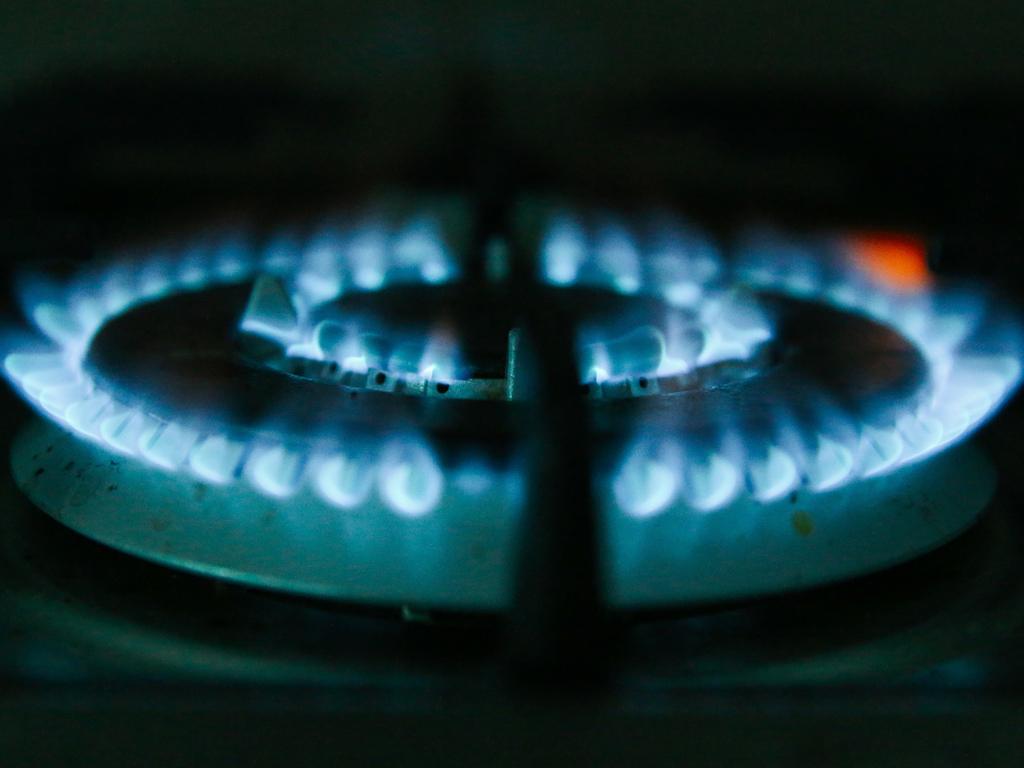Are gas stoves dangerous to your health? Here’s what science says
Debate over the idea of banning gas stoves reignites questions about health risks. People either swear by them or say they’re harming our health. But what are the facts?

People either swear by gas stoves or say they’re harming our health. But what is the science behind the debate?
The fury was reignited earlier this month after reports that a commissioner of the US Consumer Product Safety Commission was considering a ban on natural gas stoves. The chairman of the commission has since clarified that there’s no move to ban gas stoves, but they are seeking ways to make them safer.
The main health concern with gas stoves is that they emit nitrogen dioxide. This gas can trigger inflammation in the airway and irritate the lungs, potentially exacerbating respiratory illnesses such as asthma or chronic obstructive pulmonary disease in adults and children, according to environmental-health scientists and doctors.
For the approximately 38 per cent of US households that cook with gas, there are ways to reduce exposure. You can use a range hood when you cook with gas, provided you have one that vents air outside rather than recirculates it. And open your windows when possible.
Assessing the Risks
The debate stemmed in part from a December study in International Journal of Environmental Research and Public Health, which is a peer-reviewed journal. It analysed previous studies on gas stoves as well as US census data and concluded that nearly 13 per cent of US childhood asthma cases can be attributed to gas stove use.
That study used data from a 2013 meta-analysis – or review of the existing research – which found that children who live in a home with a gas stove have a 42 per cent increased risk of having asthma symptoms and a 24 per cent increased risk of being diagnosed with asthma. The December study also used data from a 2018 Australian study, which found that 12 per cent of childhood asthma cases there can be attributed to gas stoves.
A meta-analysis is statistical analysis that looks at multiple studies on the same topic. Researchers often conduct them to evaluate the body of evidence on a particular topic.
“This was sort of a first step in trying to quantify this burden,” says Brady Seals, a co-author on the study and manager of the carbon-free buildings program at RMI, a Colorado-based clean-energy research organisation.
Public and environmental-health scientists say the recent study merely confirmed what they’ve known for more than a decade.
“There’s no uncertainty about the basic premise that burning natural gas is bad for you,” says Darby Jack, an associate professor of environmental health at Columbia University Medical Center in New York. “The emissions are bad for you.”
Gas-stove emissions
Nitrogen dioxide can trigger asthma symptoms in people who already have the condition and is associated with the development of new cases, says Curtis Nordgaard, a paediatrician at Hennepin Healthcare in Minneapolis and an environmental-health consultant.
Exposure to nitrogen dioxide won’t cause asthma in everyone, but in certain people who are more vulnerable to developing it, chronic inflammation and stress in the airway might be one trigger, says Dr Nordgaard.
The level of risk in a home depends on a number of factors, says Dr Jack, including the ventilation in the kitchen, how old and well-maintained the stove is and how you’re using it.
“For somebody cooking on a late model, well-maintained stove with a good hood and good ventilation, concentrations (of natural gas) are going to be pretty low and the risk is pretty low,” says Dr Jack.
Researchers say other appliances that use natural gas, such as furnaces and boilers, are less of a concern when it comes to nitrogen dioxide because they are required to vent directly outdoors.
What about when the stove is off?
Stoves can emit gas even when you’re not using them, but the gas emitted is largely methane, says Rob Jackson, an environmental scientist and professor at Stanford University. Methane is a greenhouse gas linked to global warming, but the levels emitted from a stove aren’t considered harmful to human health, he says.
“The methane emissions are not a health issue indoors at the concentrations we find,” says Dr Jackson. He was senior author on a 2022 study in the journal Environmental Science & Technology, which found that three-quarters of the methane emitted from gas stoves takes place when they are turned off.
Reducing the risk
If you’re moving into a new home or renovating your kitchen, consider an electric or induction stove, health experts say.
If you are using a gas stove, the best thing to do, they say, is to get a good range hood and ensure it’s venting air outside rather than recirculating it back into your kitchen. Make sure you use your hood while cooking. Open your windows, too, to improve ventilation.
Fixing or running a kitchen exhaust fan, or replacing a gas stove with an electric one, led to a 7 per cent reduction in serious asthma events in the homes of children with asthma, found a 2014 study in the Journal of Allergy and Clinical Immunology.
“You can get appreciable health benefits if you improve ventilation in the kitchen or remove the gas stove as a source,” says Jon Levy, professor and chair of environmental health at Boston University School of Public Health, who conducted the study along with co-researchers.
Being farther from the kitchen when using a gas stove also helps, says Dr Levy, as nitrogen-dioxide levels can remain elevated for an hour or more if the kitchen lacks good ventilation.
He recommends keeping young children and other people who might be vulnerable away from the kitchen while you’re cooking. Even cooking on the back burner results in less exposure, he says.
Some doctors suggest buying a countertop induction burner to use for some simpler tasks – such as boiling water for tea or pasta – rather than always using your stove.
The Wall Street Journal







To join the conversation, please log in. Don't have an account? Register
Join the conversation, you are commenting as Logout